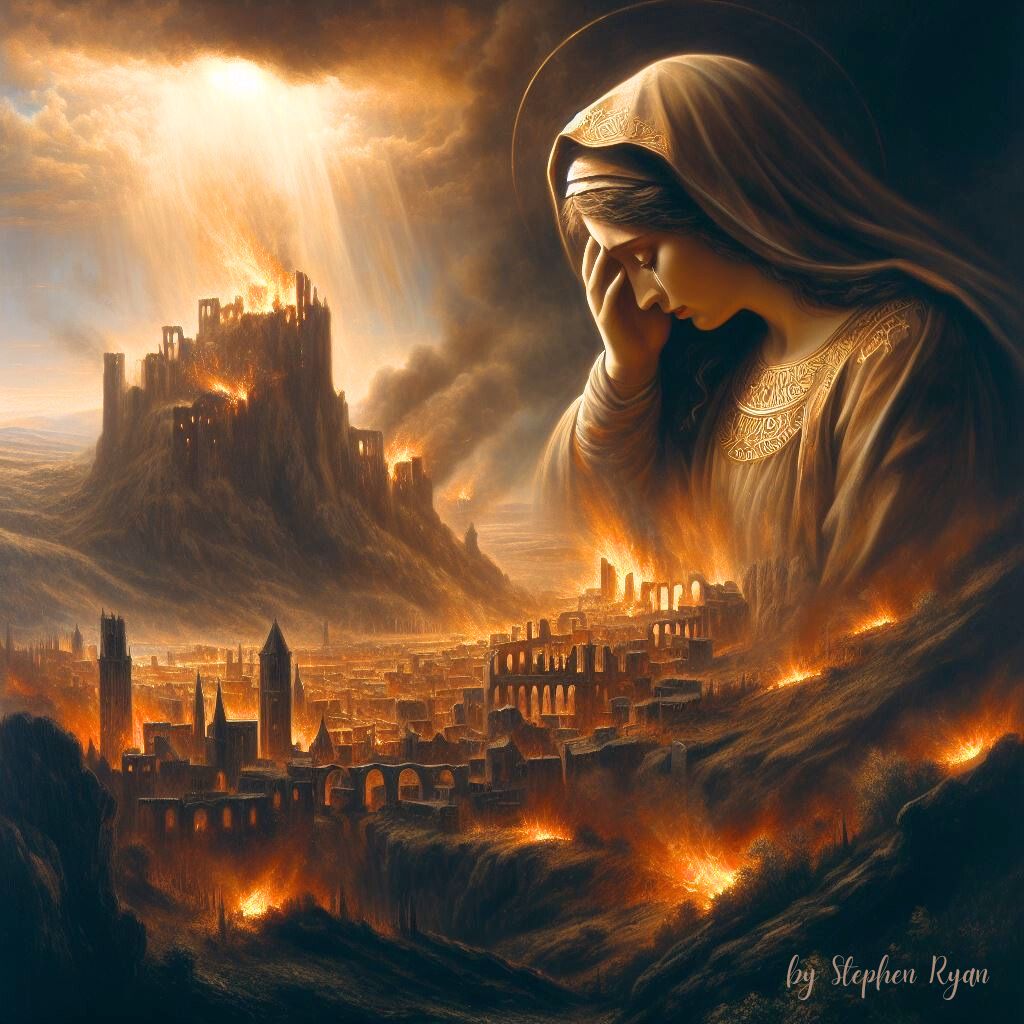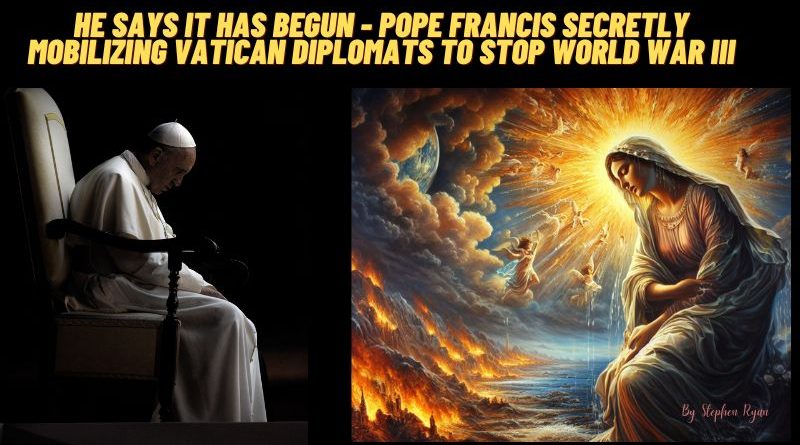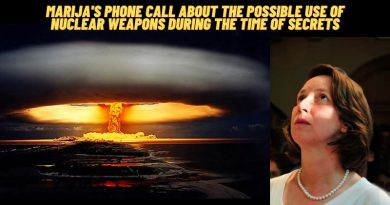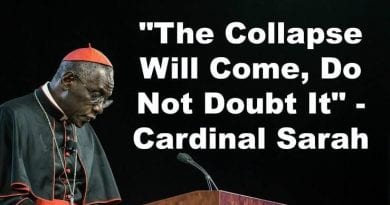HE SAYS IT HAS BEGUN IN THE HOLY LAND – POPE FRANCIS SECRETLY MOBILIZING VATICAN DIPLOMATS TO STOP WORLD WAR III
Pope Francis and the Vatican are pursuing peace in the globe’s two major conflicts, working through official and unofficial channels.
VATICAN CITY (RNS) — Already engaged with the conflict in Ukraine, Pope Francis and the Vatican have opened a new front in diplomacy efforts to address the violence in the Holy Land, with papal diplomats working to promote peace through official and unofficial channels.
Like religious leaders around the world, Francis has made official statements on the war that has followed Hamas’ Oct. 7 attack on Israel. “I encourage faithful to take only one side in this conflict, the side of peace,” Francis said during his weekly audience on Oct. 18.
Nine days later he called for a day of prayer and fasting for peace, repeating the appeal spoken by Pope Pius XII at the onset of the Second World War: “Nothing is lost in peace, all can be lost with war.”
Vatican officials joined international calls for renewed pursuit of a two-state solution as a long-term answer to the Israeli-Palestinian conflict, establishing a viable Palestinian state alongside security guarantees for Israel, which has been the Holy See’s position since 2013.
Francis reaffirmed the Vatican’s support for the strategy in phone calls with U.S. President Joe Biden and Turkish President Recep Tayyip Erdogan, while the apostolic nuncio to the United Nations, Archbishop Giordano Caccia, told the Security Council on Oct. 24, “while the path of dialogue appears narrow at present, it is the only viable option for a lasting end to the cycle of violence that has engulfed that land, so dear to Christians, Jews and Muslims.”
The Vatican’s secretary for relations with states, Archbishop Paul Gallagher, meanwhile has reached out to other leaders in the region, conveying to Iranian Foreign Minister Hossein Amir-Abdollahian in a phone conversation “the Holy See’s serious concern for what is unfolding in Israel and Palestine, underlining the absolute need to avoid enlarging the conflict and to realize the two-State solution for a stable and lasting peace in the Middle East,” according to a Vatican statement.
The Holy See, which recognized the state of Palestine in 2013 and signed the first comprehensive agreement with the Palestinian Authority in June 2015, also has diplomatic relations with Jordan and Egypt.

But the church’s real diplomatic work is being performed by organizations and leaders outside the Vatican walls. The lay movement of St. Egidio, a Rome-based Catholic organization focusing on peace promotion and poverty relief efforts, has become the arm of the pope’s invisible diplomacy.
When war broke out in Ukraine, Francis tapped Cardinal Matteo Zuppi, archbishop of Bologna, and cardinal-priest of St. Egidio, to be his personal peace envoy. It remains unclear whether the pope will appoint another envoy for the Mideast, but in the meantime Zuppi has weighed in on the hostilities in Gaza, underlining the need “for an authoritative Palestinian leadership that is capable of defending its people” in comments to journalists on Oct. 26.
If the pope sees the need for a dedicated representative for the Israel-Hamas war, “the front man who knows the context, the people and the literal roads best in the Holy Land is of course Patriarch (Pierbattista) Pizzaballa, the newly elevated cardinal,” said Victor Gaetan, author of “God’s Diplomats: Pope Francis, Vatican Diplomacy and America’s Armageddon.”
“I don’t know if there is anyone in Vatican diplomacy with higher knowledge and who is better respected in the region than Pizzaballa,” Gaetan added.
Francis also depends on a network of more anonymous Catholic clergy and laypeople on the ground who keep him informed about what is happening in Gaza. He has said he speaks with a parish priest and nuns who oversee The Holy Family Church in Gaza where 563 people, mostly Christians, sought refuge. “For the time, thank God, the Israeli forces respect that parish,” he said.
Francis is not above acting on his own as peacemaker. At the outset of the war in Ukraine, he raced to the Russian Embassy in a Vatican vehicle to demand the invasion be called off, and later intervened to free prisoners, including members of the Azov Brigade, by speaking directly with the Russian ambassador. The pope has repeatedly expressed his willingness to go to Russia but said that the Russian foreign minister, Sergey Lavrov, replied that a visit is “not necessary.”





